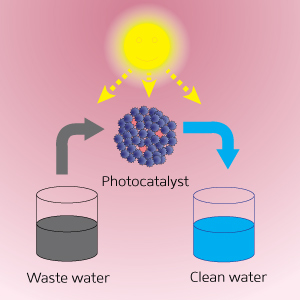Engineered Microbes for Biofuel Production
Physics
A copyrighted synthetic biology platform for producing renewable biofuels using genetically modified microbes.
The proprietary synthetic biology platform utilizes a suite of genetically engineered microorganisms, including bacteria and yeast, designed to convert biomass-derived substrates into high-energy-density biofuels. The platform's core technology involves the rational design and construction of novel biological pathways, leveraging advances in systems biology, metabolic engineering, and gene editing tools such as CRISPR-Cas9.At the heart of the platform is a proprietary genome-scale engineering approach that enables the rapid prototyping and optimization of microbial strains for enhanced biofuel production. This involves the integration of machine learning algorithms, high-throughput sequencing, and gene editing capabilities to identify and introduce beneficial genetic modifications. The platform's microbial chassis are optimized for improved tolerance to inhibitors, temperature, and pH fluctuations, ensuring robust performance in diverse operating environments.The platform's biofuel production pathways are designed to utilize a range of renewable biomass feedstocks, including agricultural residues, forestry waste, and municipal solid waste. By leveraging the versatility of synthetic biology, the platform can be easily adapted to produce a variety of biofuels, including ethanol, butanol, and biodiesel, as well as high-value chemicals and bioproducts. The platform's modular architecture enables seamless integration with existing biorefinery infrastructure, facilitating straightforward scale-up and commercialization.Key technical advantages of the platform include its ability to produce biofuels at competitive costs, with reduced environmental impact and energy inputs compared to traditional fossil fuel-based systems. The platform's genetically modified microbes have been engineered to exhibit enhanced growth rates, substrate utilization efficiencies, and product titers, ensuring high volumetric productivity and minimal waste generation. Ongoing research and development efforts focus on further optimizing strain performance, expanding substrate range, and integrating emerging technologies, such as artificial intelligence and automation, to drive down costs and accelerate the transition to a low-carbon energy future.
Transportation fuels: The genetically modified microbes can be used to produce drop-in biofuels that can power vehicles, reducing dependence on fossil fuels and lowering greenhouse gas emissions.
Aviation fuels: The synthetic biology platform can be used to produce sustainable aviation fuels that meet stringent industry standards, enabling the aviation sector to reduce its carbon footprint.
Industrial applications: The platform can be used to produce bio-based chemicals and materials, such as bioplastics, lubricants, and solvents, that can be used in various industrial processes.
Power generation: The biofuels produced using the platform can be used to generate electricity in power plants, providing a renewable alternative to fossil fuels.
Marine transportation: The biofuels can be used to power ships and boats, reducing emissions and environmental impact in the marine sector.
Agricultural applications: The genetically modified microbes can be used to produce bio-based fertilizers and pesticides, reducing the environmental impact of traditional agricultural practices.
Waste management: The platform can be used to convert organic waste into valuable biofuels and chemicals, reducing waste disposal costs and environmental impact.
Pharmaceutical applications: The synthetic biology platform can be used to produce novel compounds and therapeutics, such as biodegradable plastics and pharmaceutical intermediates.
Biomaterials: The platform can be used to produce novel biomaterials, such as biodegradable textiles and packaging materials, that can replace traditional plastics and materials.

World Bank
Audio and visual technology
View Patent
